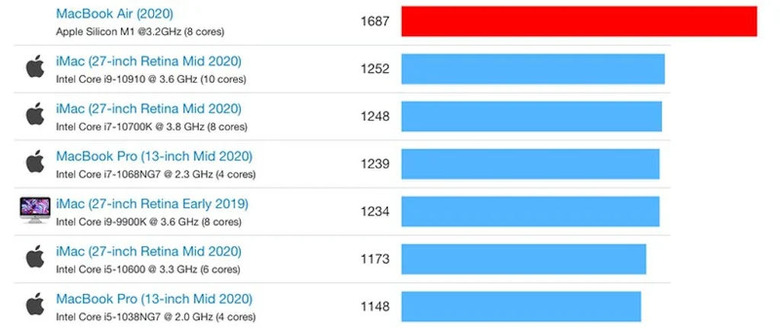Apple Silicon M1 Benchmarks Give Credence To Performance Claims
Apple's announcement of the first generation of Macs running on its own Silicon processors was unsurprisingly filled with bold claims. Given the novelty of the M1 chip and its ARM-based design, there might be some apprehension if the new MacBooks will be able to hold their own against Intel's most powerful processors. Geekbench scores for these new computers have started popping up that does seem to confirm Apple's claims, trumping Intel-based MacBooks except in one case.
Given the fact that Apple so rarely reveals many technical details about its processors, one has to rely on the company's word about the technical superiority of its own ARM-based processors. One could also glean a few clues, as what AnandTech did, or, in this case, wait for some people to upload Geekbench results for everyone else to see.
Scores for what is labeled as the MacBook Air (2020) and MacBook Pro (2020), both running on the Apple Silicon M1, give very impressive figures. The MacBook Air scores 1687 on the single-core test and 7433 on multi-core while the MacBook Pro yielded 1714 and 6802, respectively. The discrepancies can be attributed partly do different cooling systems used on the two MacBooks, with the Air sporting a fanless design while the Pro gets a new cooling system.

Regardless of those differences, the two scores still surpass Apple's best iOS devices. More importantly, however, these also ran circles around the latest Macs and MacBooks that touted Intel Core i7 and even Core i9 processors, verifying Apple's claims.
The one caveat, however, is that M1 MacBooks unsurprisingly fall behind their Intel cousins that have discrete graphics cards when it comes to GPU performance. This disadvantage will be felt even more with the lack of eGPU support that the Intel models have. That said, synthetic benchmarks only show one side of the story and it will be real-world use, with real-world applications that will really matter to users.
